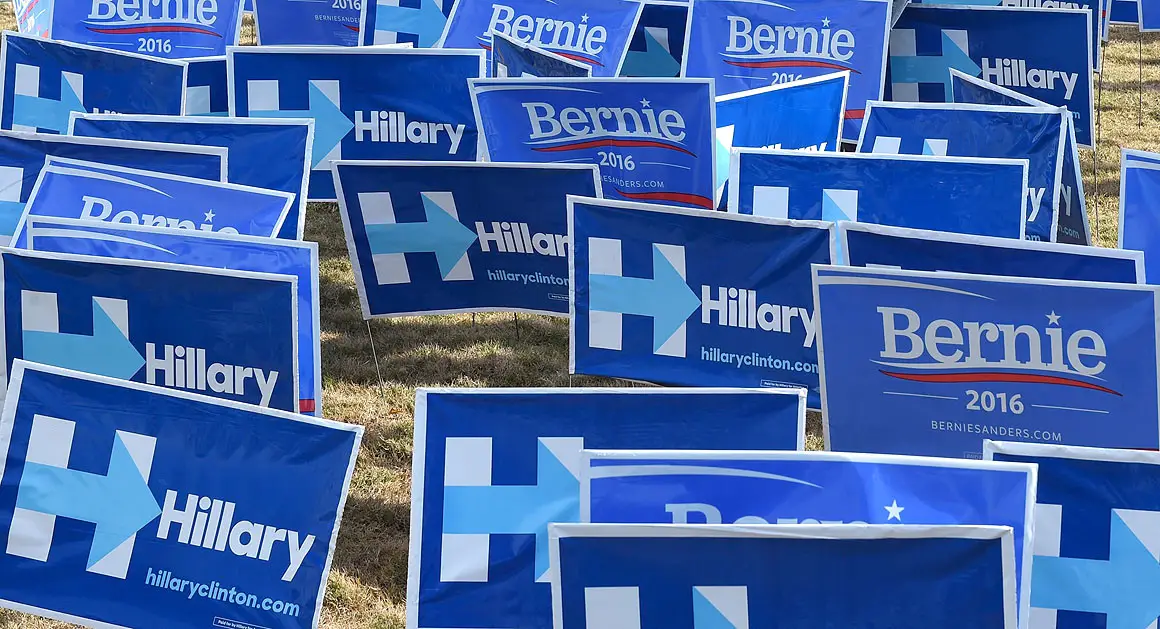Prior to the 2020 primary process, the Democratic National Committee (DNC) is looking at various proposals to reduce or eliminate the existence of the so-called “superdelegate.” During the primaries, candidates are awarded delegates proportionally based on their share of the vote. In addition to these delegates won in each state, the Democratic Party process also contained individuals within the party known as superdelegates. These individuals, consisting of elected Democratic officials and other state-level party leaders, could conceivably sway the outcome of the primary process if they chose to override Democratic voters. You can see the breakdown in practice in the list of delegates won by Hillary Clinton and Bernie Sanders in 2016. Superdelegates are not bound by any state result and may simply choose to support any candidate in the Democratic field.
The Hill reports on this development in the Democratic primary process:
The DNC’s Rules and Bylaws Committee have been discussing the proposal on superdelegates created by the Unity Reform Commission, which was created after Sen. Bernie Sanders (I-Vt.) and Hillary Clinton’s 2016 primary battle.
The unity commission had called to reduce superdelegates by about 60 percent, but the Rules and Bylaws Committee is now considering taking the proposal even further.
The DNC members are debating language that would call for the committee to either “reduce,” “substantially reduce” or “eliminate” superdelegates, according to BuzzFeed.
Superdelegates are not bound to states’ election results in primaries, and can support whichever candidate they choose to at their party’s nominating convention.
The delegates became a major point of contention during the 2016 Democratic primary, with some Sanders supporters believing that establishment Democrats serving as superdelegates rigged the primary in Clinton’s favor.
Superdelegates were a controversial topic in 2016, as mentioned by the story. Had their been enough of a breakaway, the superdleegates could have chosen to push Bernie Sanders over the top, rather than Hillary Clinton. That in itself would have also been unlikely since the superdelegates tend to rally around the winner. However, the bigger issue was how the superdelegates should be counted since adding them into the delegate totals gave the appearance of a massive lead for Hillary when it came to primary contests. The truth is that without the superdelegates, the race between Bernie and Hillary was very tight.
The “unpledged delegates,” as they’re officially called, were added to the mix in the early 1970s to give party leaders more control over the process and prevent a runaway nomination of candidate too far outside what was considered to be mainstream at the time.
With 2020 shaping up to produce a massive field on the Democratic side, it will be important for the party to avoid the appearance of a tilted primary as was seen in 2016 when scales were tipped in Hillary’s favor.
Donate Now to Support Election Central
- Help defend independent journalism
- Directly support this website and our efforts
